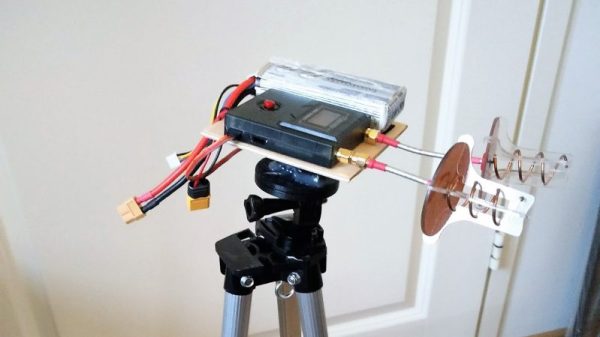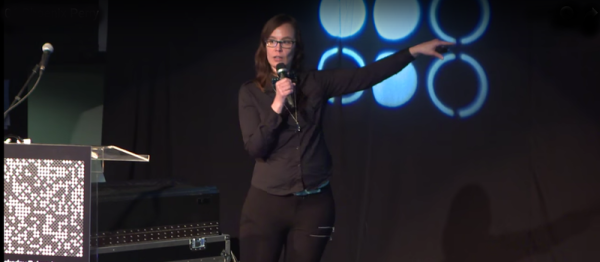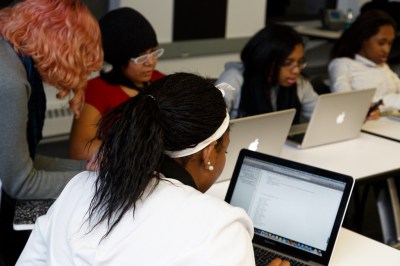What’s more disruptive to the drone first-person view (FPV) experience than dropouts in your video feed when you’re in the middle of a race? Probably nothing, and there’s probably also not much you can do about it. Or is there? Might a simple tracker based on RSSI help keep your video signal locked in?
Honestly, we’re not sure it would, but we think it’s pretty nifty to see [FlyerFpv]’s tracker following his drone around. The idea is simple and uses the full-diversity FPV receiver he already has. Diversity receivers constantly monitor signal strength from multiple antennas to determine which one to listen to, which improves reception quality. [FlyerFpv] sends the RSSI outputs to analog inputs on an Arduino which drives a servo to keep the signals as close to each other as possible. The Arduino and the DC-DC converter needed to power it fit nicely inside the receiver case with no modifications, which is a nice touch. With a 3D-printed servo mount and some fancy directional antennas, the setup keeps pretty good track of his drone now. See it in action below.
Sure, the response could be snappier, and we’d love to see another receiver and servo added to track pitch as well as yaw. For a first pass, we think it’s great, but [FlyerFpv] should enjoy it while he can in case AI takes over our flying fun soon.
Continue reading “Super Simple, Super Cheap FPV Drone Tracking”














